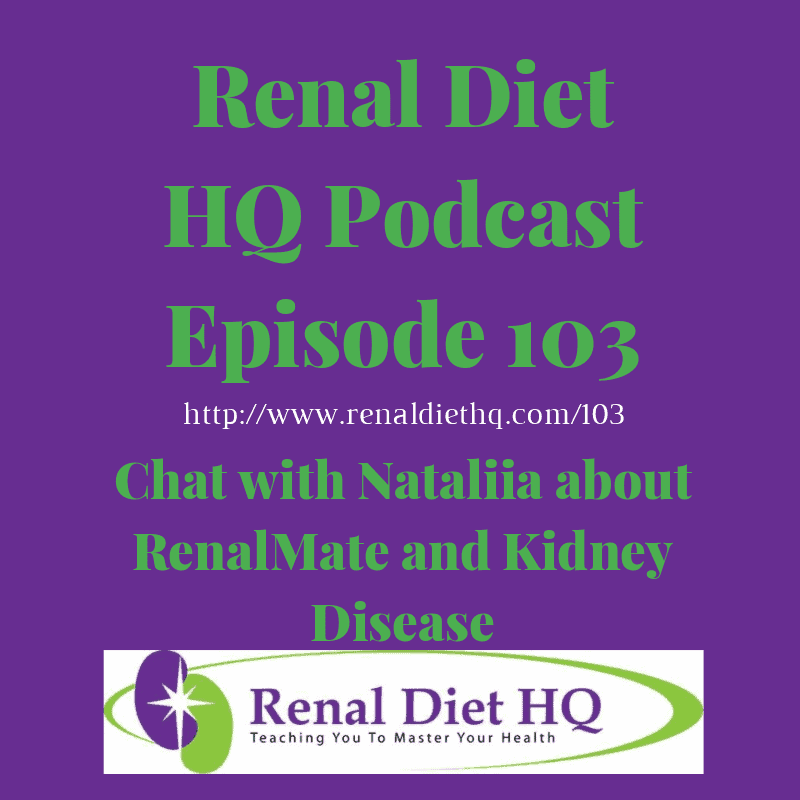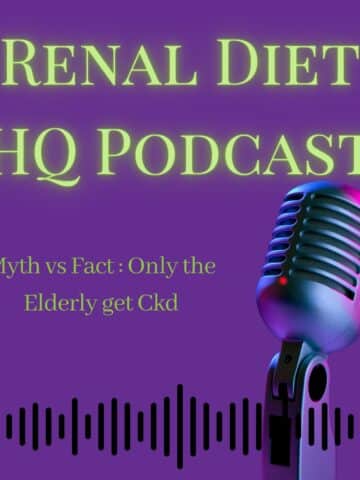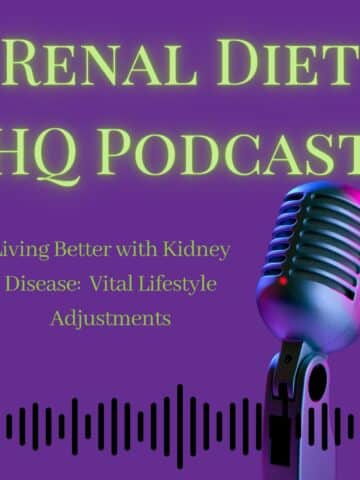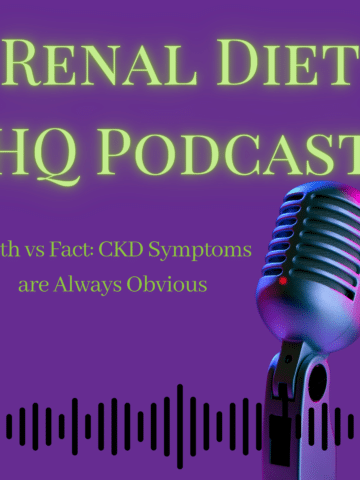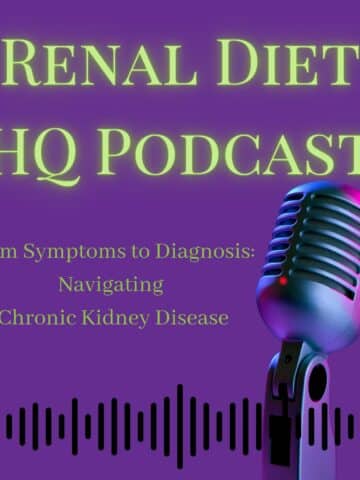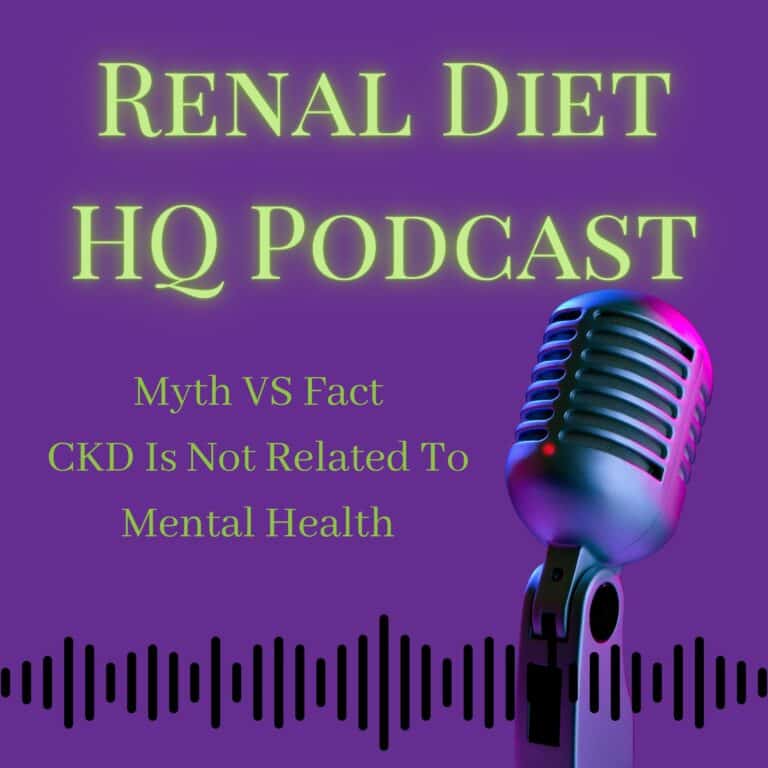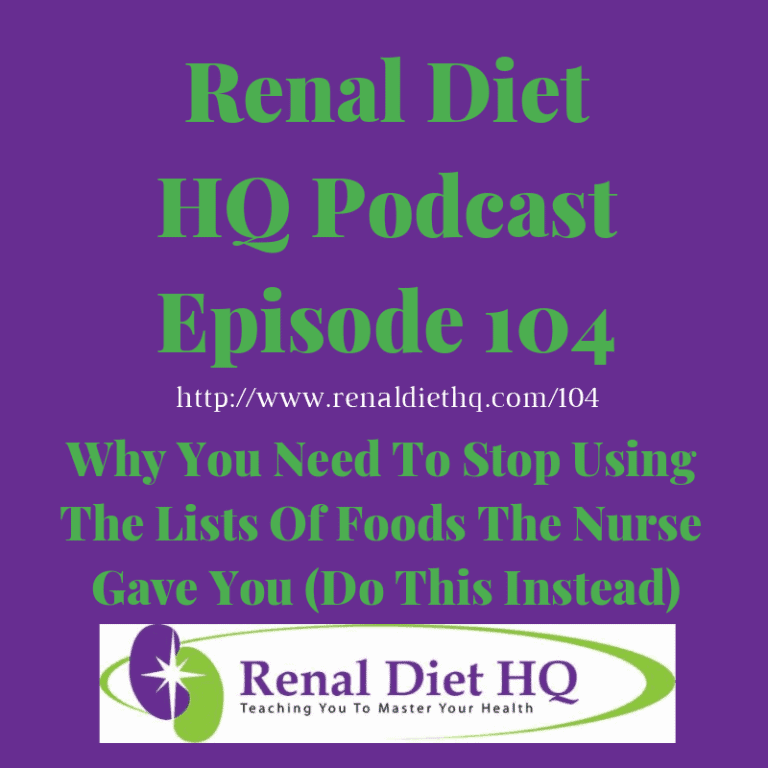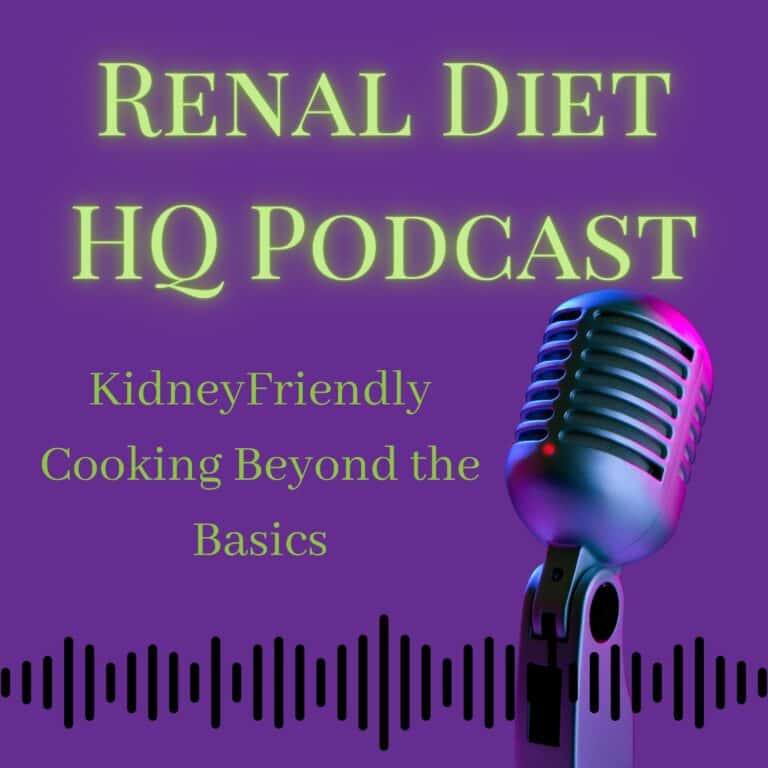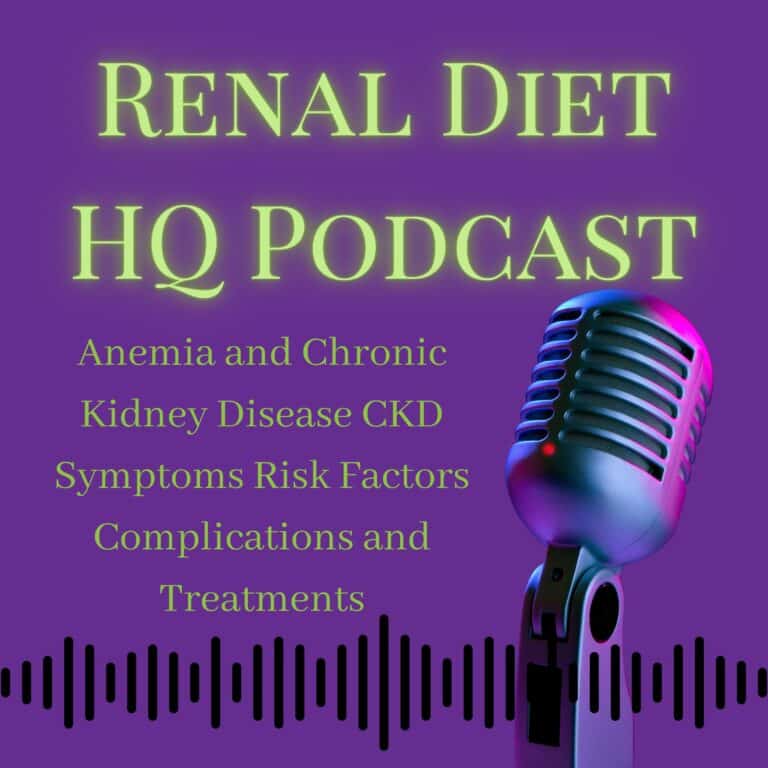RDHQ Podcast 103: Chat with Nataliia about RenalMate and Kidney Disease
Podcast: Play in new window | Download
Mathea Ford: Hi there! It's Mathea Ford with Renal Diet HQ and today I'm here with Nataliia Karpenko. We're going talk today a little bit about RenalMate as you may remember I am an advisory board member with RenalMate and Natalia is the CEO and creator and she's like the inspiration behind a lot of things. She's always coming up with great ideas and why don't you tell us how you got how you came up with RenalMate? And what it is?
Nataliia Karpenko: Yeah. Hi to everyone! Today, we are at ISN, a Medical Society of Nephrology event in Washington DC. It's Kidney Week 2019. It's the opening day so it's really important to be here with Ms. Mathea Ford and thank you Mathea for this occasion. I just really think that it is so important to know why people have that passion for renal space and for nephrology.
I'm a former kidney patient. And beside this, I worked in a Technology Innovations Corporate Values. From the professional side, many people in the United States are dealing with chronic illness and they are overstressed, knew so little about diet and then you go to renal disease and you go to nephrology and you then realized that it is exponentially higher in terms of the amount of adherence and amount of comprehensive compliance patients have to have but sometimes Education is not there with education that is fully understood by patients as well as necessary simple work that will allow patients to feel empowered to start moving, to feel empowered to know that they can change, that they can improve their quality of life.
Since, I was very passionate about my personal craft, looking at that and say, "When I was a child and given is my kidney condition, what would become better?" And I certainly knew that it could be done in better ways that my family would recede back to education. How we can work on effective ways of improving the quality of the diet, improving the quality of life management, and luckily, it is the technology. Yeah. These days, there are so many ways how we can improve the quality of vitals management. Where some medical team would be on board knowing what's happening to patients with remote monitoring well designed in one side, patients will be able to manage their rate and blood pressure and the medical team could be informed if there are any abnormalities happening to patients.
There is a lot of value in it in passion, science-based approach, expertise, and technology together to really create something innovative but valuable for patients.
Mathea Ford: Yeah. I think it's what you mentioned is the kidney disease is really a hard diet to follow but it's got so many other layers that we don't even realize. You know, there's the family dynamic, there's the diet, there's the medications. Everything changes with kidney disease and putting that all together can be hard. So, we're here at ASN this week because we have a program called LEP. It was Life Enhancement Program. It's like a coaching program for kidney patients and we've done it a couple of times and we're presenting to the Nephrology Conference about the outcomes and stuff but what this is is RenalMate is an app and we're working on building it to make it so it's helpful to people who have kidney disease regardless of the stage and try to focus on the different areas of kidney disease.
If you're CKD 3 or CKD 4, before you get on dialysis, then it helps you to understand what is important at that phase because as your phase goes along, as you go along different things become important. You may have different medications, you may change, you're looking at your labs, you're you know you may have to have surgical prevention, surgical procedures done.
All those things so you had the passion because you're a kidney patient and you love technology and so Nataliia is out in San Francisco and she's around all the technology stuff so I guess that's why you decided to do an app.
Nataliia Karpenko: That's kind of easy, right? Yeah! You know, right. My first degree was Computer Science and then I continued with some Corporate Development and I was always fascinated how can technology and innovations can address those necessary gaps that prevented and hide the you know, adoption or deliverance of value. So, what they see what is really important. Building LEP, we took into consideration that it's a patient-centric approach, so the patients are involved in the design. We are not only working with patients who are participating in the program but patience involved and every staff design as a program and improving modules.
Working it as on the curriculum working it as on the content and guys, to tell you truth, the biggest part that I see was some renal education. Very often, you have to have level of Ph.D. level education to really understand the literature and we see that our patients want to have more pleasant experiences in education, interacting with the coaches and want to have more positive attitude toward their life instead of going back to school. We are taking a different approach. Yeah. And that's why it was such a great pleasure working with Mathea Ford and her experience because she's been in different groups of renal dietitians.
One of the various ways of managing her RD live. You know, that has been very valuable to work with someone so close who understands how to convey and how to bring the necessary content in the proper ways that patients can understand and willing to take more time eventually to learn more about it. It's good that it will be broken into smaller pieces and to make sure that you remember what is potassium, what is phosphorus, how much of this I can take in my lunch meal, what in my dinner meal? So, that very important that engagement with Renal Diet HQ has been excellent and we are looking forward for future collaborations.
Mathea Ford: Yeah and well and what I love about it is that there's not it's there's so much more potential to talk to people when you're using an app that somebody can have on their phones. A lot of people have smartphones, a lot of people have the ability to get this information and we can target it at a level where you can understand it and what I always forget sometimes is that I can give you all the information. I can overload you with tons of information about changing your diet but really what are you wanting to do right now? What do you think is most important? What are you most worried about? What is your lab that was worrisome? So, giving you that access to that information about and making some goals around that which is what the LEP program was is making some goals. So, what is it that you want to change?
What do you want to have at the end? And then what type of goals do you want to have that will bring you the results that you desire because your doctor can want for you to lose 50 pounds and maybe you want to have a better you want to live longer to be there with your grandchildren. Honestly, both of those are probably getting you to the same place but if you want to do it because you want to do it for your grandchildren and stuff, we want to find ways to help you meet that goal and have that why. The deeper why they want to do it.
I'm so excited to be here and I just wanted to spend a few minutes and let you guys meet Nataliia because I think she's brilliant and she really has... she loves collaborating and so anyway I'll talk to you guys later have a good day! Bye!

